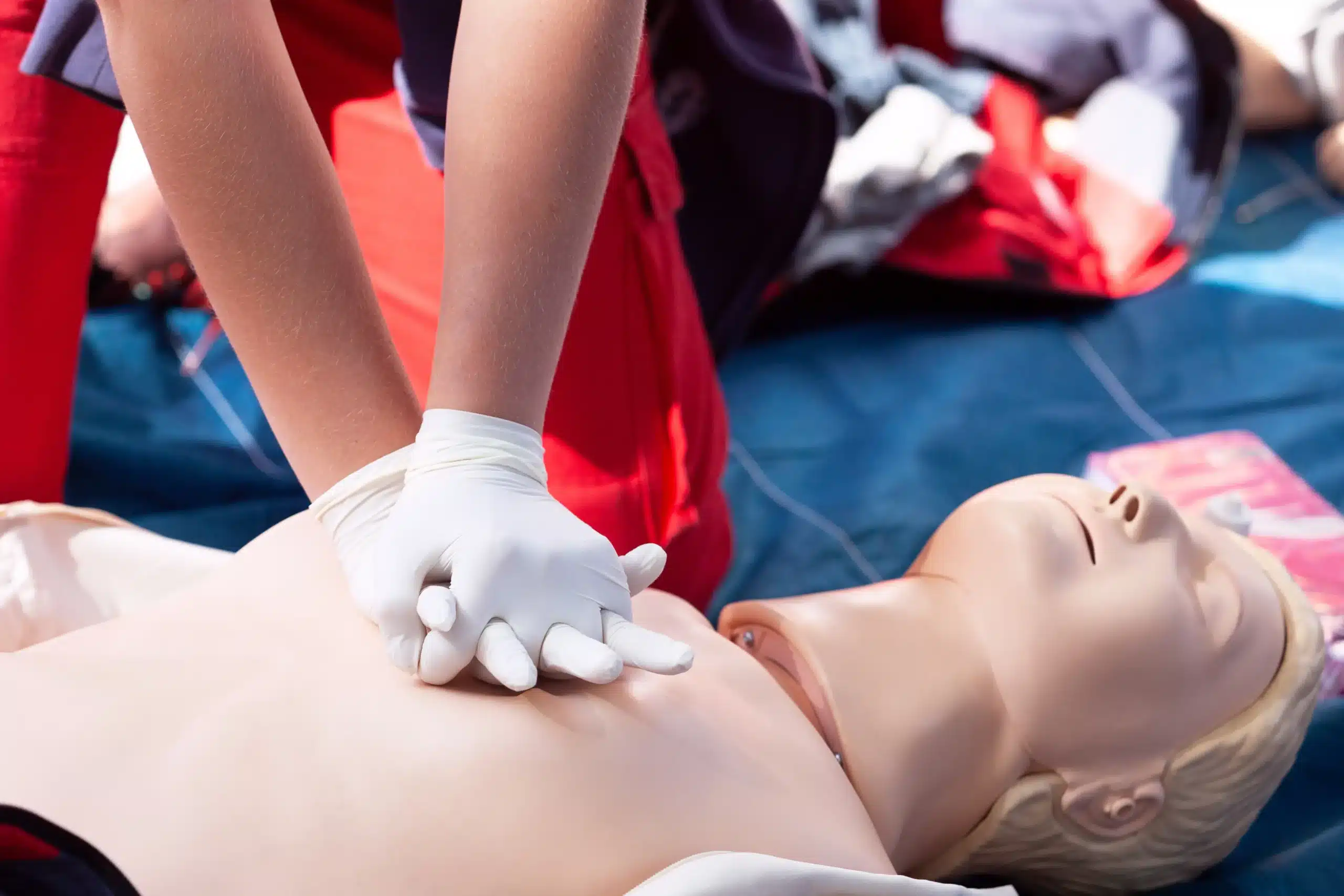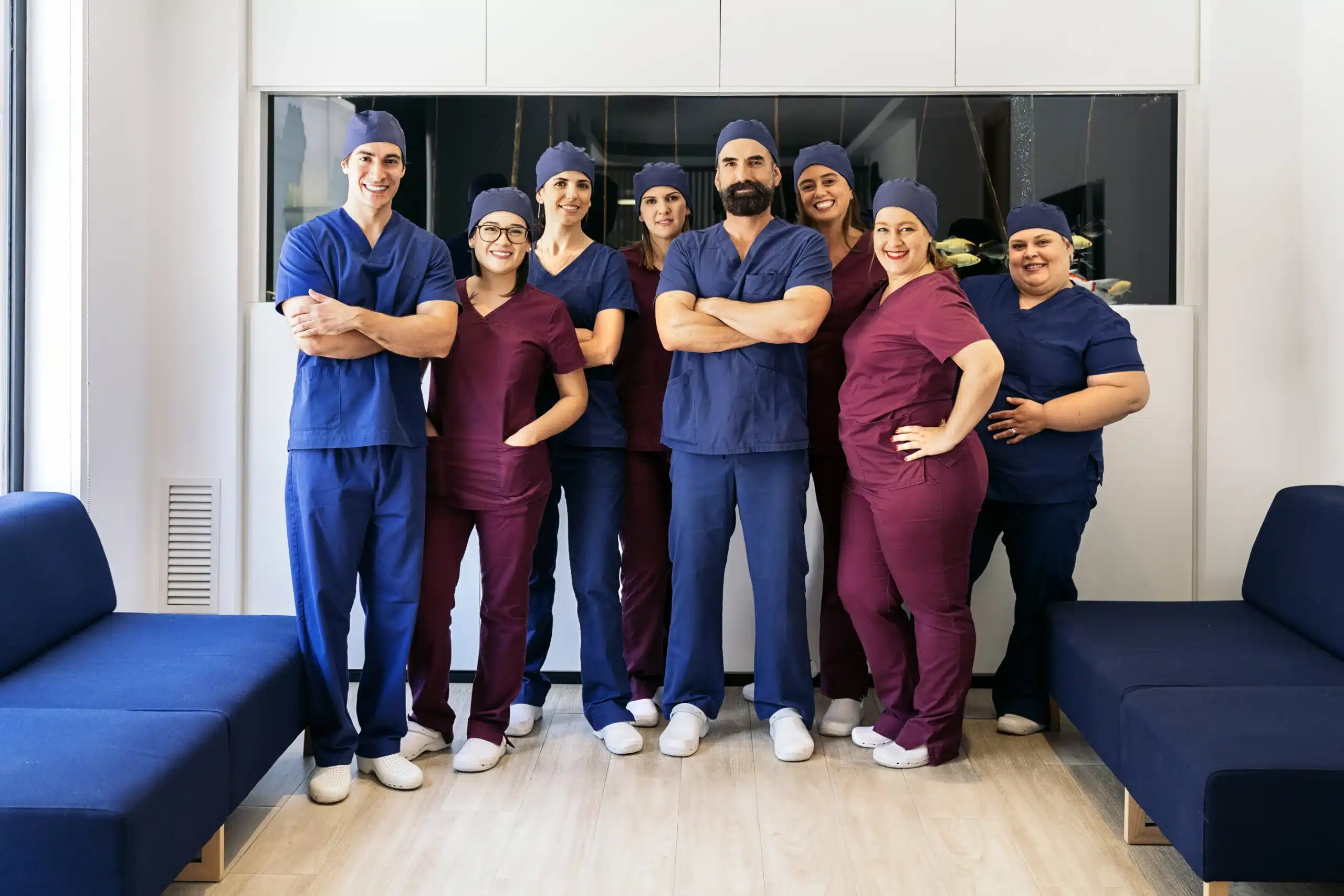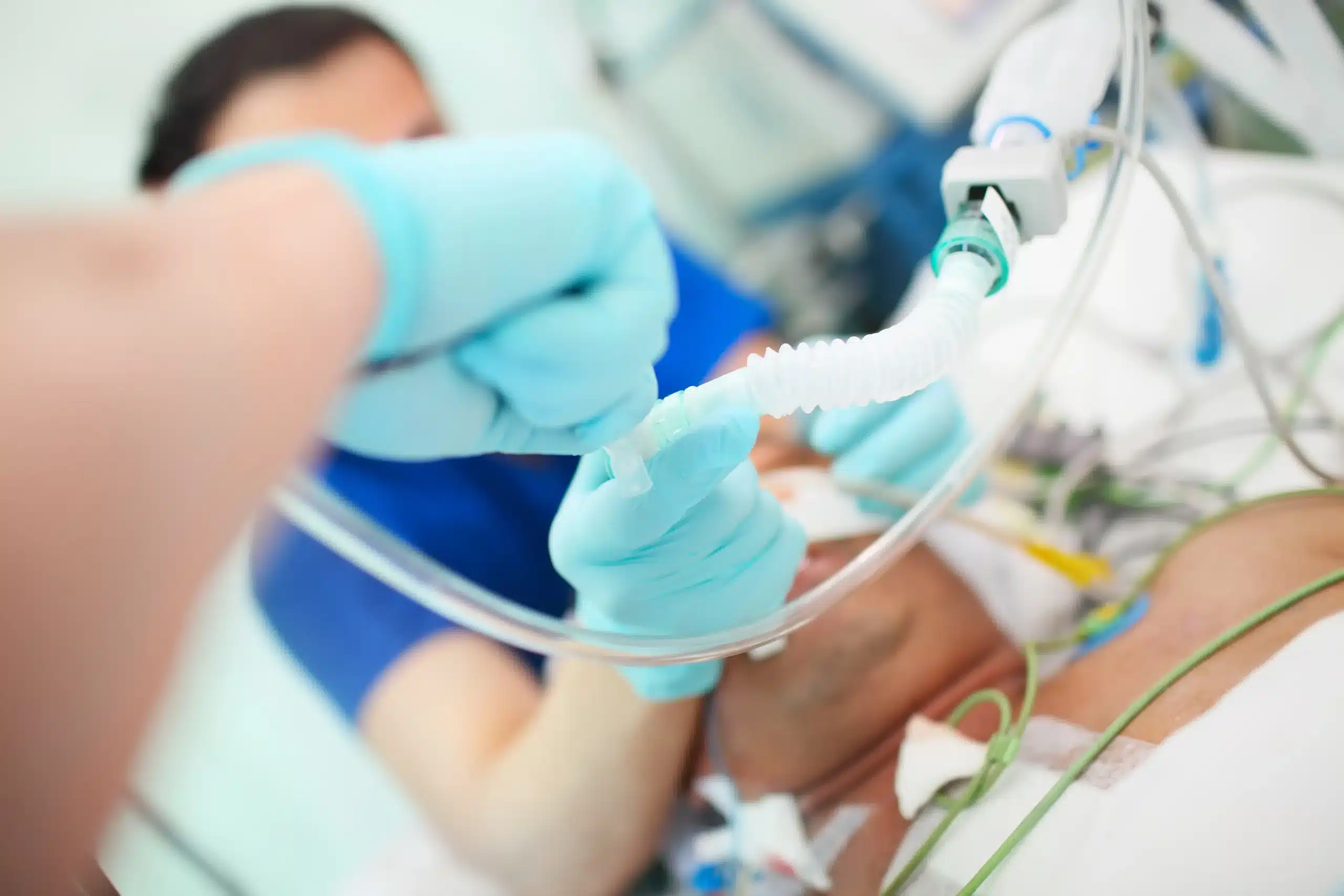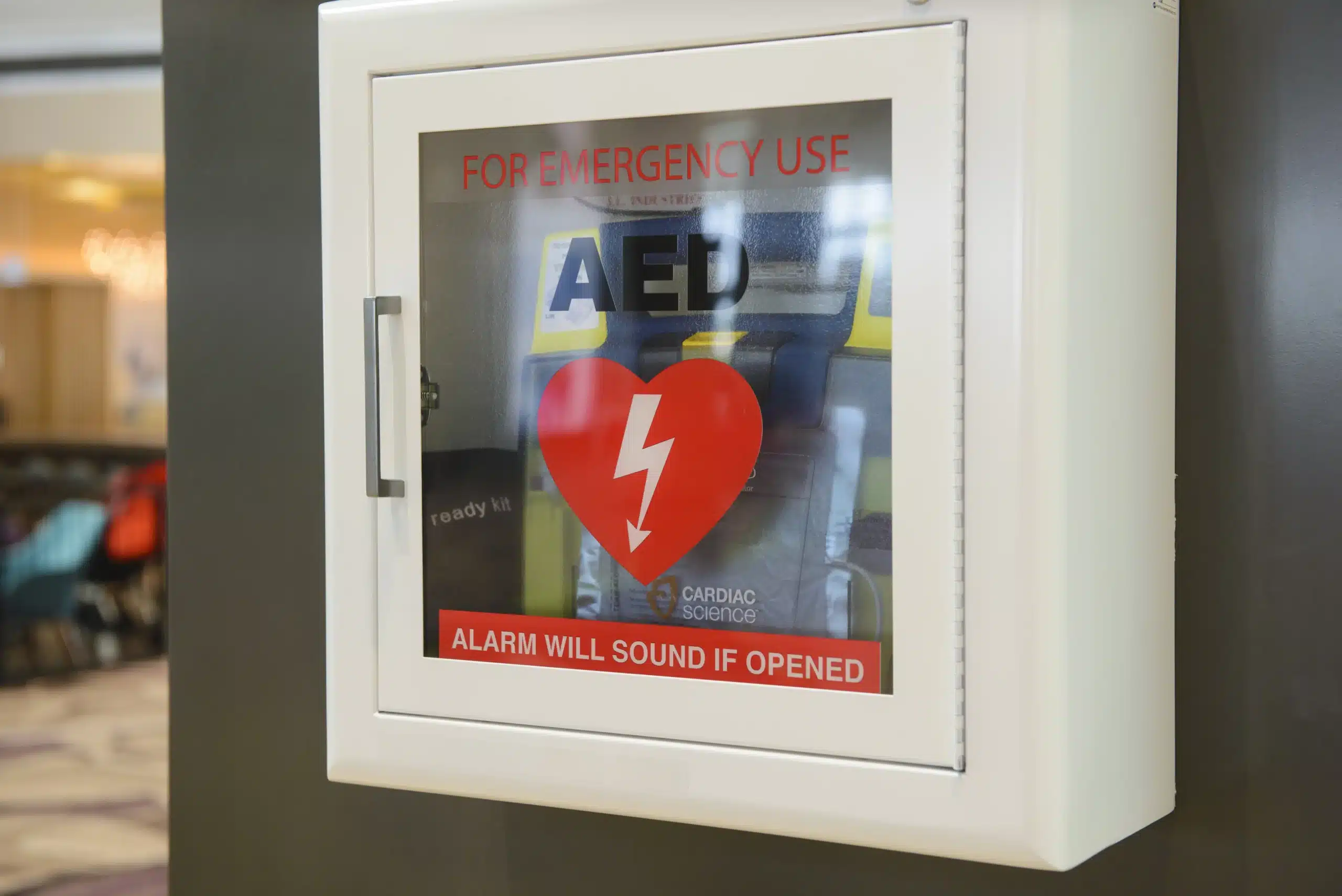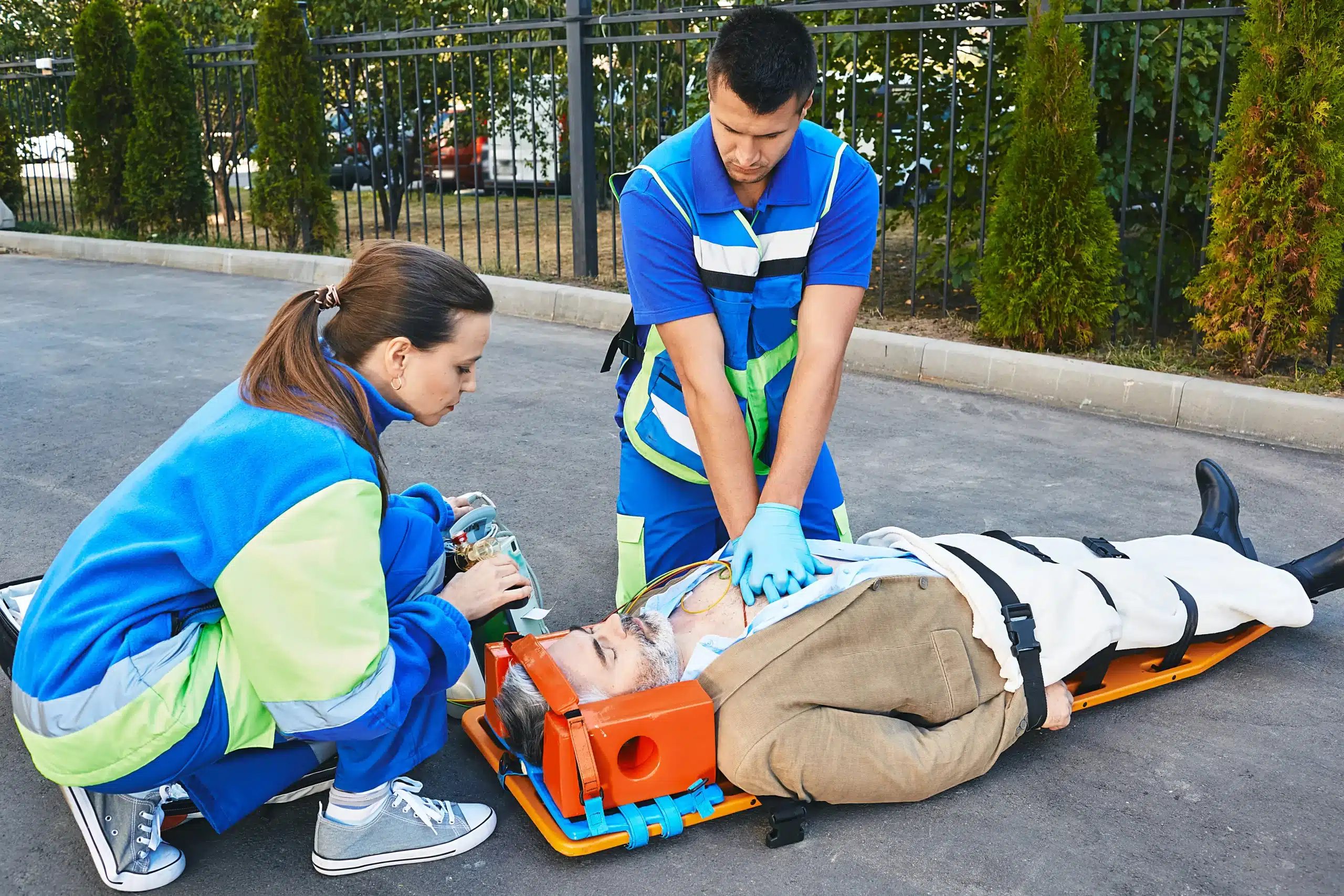Living in a vibrant area like San Mateo comes with its perks, but it’s also important to be prepared for the unexpected. Accidents and medical emergencies can happen anytime, and knowing how to respond can make all the difference. First aid training courses in San Mateo provide residents with the essential skills and knowledge to handle a variety of situations, from minor injuries to life-threatening events. This article will explore the diverse range of first aid training courses San Mateo has to offer, highlighting key aspects such as CPR certification, AED training, and basic first aid techniques. We’ll also discuss the importance of choosing a reputable training provider and the benefits of hands-on learning. Whether you’re a healthcare professional, a parent, or simply a concerned citizen, first aid training courses in San Mateo can empower you to act confidently and potentially save lives.
Key Takeaways
- First aid training empowers you to handle emergencies: Find a San Mateo course that fits your needs, from basic CPR to advanced life support, and gain the confidence and skills to respond effectively to various medical situations.
- Safety Training Seminars offers high-quality, affordable training: Get certified conveniently and affordably with their low price guarantee and variety of courses, including CPR, First Aid, BLS, ACLS, and PALS. Learn from experienced instructors in AHA-certified programs.
- Investing in first aid training benefits everyone: Prepare yourself for emergencies and contribute to safer workplaces and communities. Learning these skills can make a real difference.
What are First Aid Training Courses in San Mateo?
First aid training courses in San Mateo equip you with the skills to handle emergencies. These courses cover various topics, from CPR (Cardiopulmonary Resuscitation) and basic first aid techniques to using an AED (Automated External Defibrillator). Think of it as your personal toolkit for responding to accidents, sudden illnesses, or other urgent situations. These skills can truly make a difference.
Several organizations in San Mateo offer a variety of first aid courses. Safety Training Seminars provides American Heart Association (AHA)-certified courses ranging from basic CPR and first aid to advanced certifications like BLS, ACLS, and PALS. If you prefer learning at home or in the office, In-Home CPR brings the training to you in San Mateo County and surrounding areas. Whether you’re a healthcare professional, a childcare provider, or simply want to be prepared, you can find a course tailored to your needs.
First aid training isn’t one-size-fits-all. You can find courses focusing on the essentials, like a basic Emergency First Aid course covering core skills in a single day. First Aid Training Calgary describes the differences between basic and advanced courses. For more comprehensive training, choose a course covering advanced topics like handling head and spinal injuries. The Red Cross also offers various first aid courses, often including CPR and AED training, teaching you how to respond to emergencies like burns, allergic reactions, and heart attacks. With so many options, you can select the course that best suits your needs and schedule.
First Aid Course Types
Knowing which first aid course best suits your needs can feel overwhelming with so many options. This section breaks down the different types of first aid training available in San Mateo, from basic CPR to advanced life support certifications.
CPR and AED Certification
This fundamental course equips you with life-saving CPR techniques and teaches you how to use an automated external defibrillator (AED). Safety Training Seminars offers American Heart Association (AHA)-certified courses in CPR and AED usage, alongside other essential certifications like BLS, ACLS, PALS, and First Aid, right here in San Mateo. Learning CPR and AED usage can empower you to respond effectively during cardiac emergencies.
Basic First Aid Certification
Basic first aid courses cover a broader range of skills beyond CPR. You’ll learn how to manage injuries like cuts, burns, fractures, and other common medical emergencies. The San Mateo Consolidated Fire Department (SMCFD) offers courses on emergency preparedness, CPR, and first aid, designed to help residents protect themselves and their families. These courses are a great starting point for anyone looking to develop essential first aid skills.
Advanced Life Support Courses (BLS, ACLS, PALS)
For healthcare professionals, advanced life support courses are crucial. These courses build upon basic life support (BLS) skills and delve into more complex emergency medical procedures. Safety Training Seminars provides AHA BLS, ACLS, and PALS courses. These certifications are essential for doctors, nurses, paramedics, and other healthcare providers. PALS (Pediatric Advanced Life Support) focuses specifically on the emergency care of infants and children. ACLS certification covers more comprehensive life support techniques for adults.
Specialized Training Options
Certain professions and industries require specialized first aid training. For example, construction workers, childcare providers, and those working in dental or surgical offices may need specific certifications. In-Home CPR offers tailored CPR, First Aid, BLS, and ACLS classes in San Mateo County and beyond, catering to various industries and professional needs. They can bring the training directly to your workplace, making it convenient and efficient.
Course Costs & Discounts
Knowing the price range for first aid and CPR training helps you budget accordingly. This section breaks down typical costs, discounts, and Safety Training Seminars’ commitment to affordability.
Typical Course Prices
Safety Training Seminars offers American Heart Association CPR, BLS, ACLS, PALS, and First Aid courses starting at $94.50. This makes high-quality training accessible to a wide range of individuals in San Mateo, Daly City, and Millbrae. For healthcare professionals needing to renew certifications, we offer RQI courses as well. You can find more details about all our course offerings on our website. We also offer the more advanced ACLS and BLS certifications for those pursuing careers in the medical field.
Group Rates & Special Offers
We often have special offers available, so it’s always a good idea to check our website or contact us directly. For groups, we encourage you to reach out to discuss discounted rates for your team or organization. This can be a cost-effective way to ensure everyone receives crucial life-saving training.
Safety Training Seminars’ Low Price Guarantee
At Safety Training Seminars, we believe that cost shouldn’t be a barrier to learning these essential skills. We’re committed to providing high-quality training at competitive prices. Our low price guarantee ensures you’re getting the best possible value. We’re confident that you won’t find a better combination of quality instruction and affordability in the San Mateo area.
Instructor Qualifications & Course Quality
Knowing you’re learning from qualified professionals gives you confidence in your training. When choosing a first aid course, look for instructors with certifications from recognized organizations. This section covers what to look for in a quality instructor and program.
Trainer Certification Requirements
Instructors should hold current certifications from reputable organizations like the American Heart Association (AHA), the Red Cross, or St. John Ambulance. These organizations maintain rigorous standards, ensuring instructors possess up-to-date knowledge and skills. Safety Training Seminars instructors, for example, have extensive first aid training and certifications from these respected organizations. Verify an instructor’s credentials before signing up for a course to confirm their qualifications.
San Mateo Instructor Experience
Beyond certifications, real-world experience matters. Instructors with backgrounds as EMTs, paramedics, or registered nurses bring valuable practical insights to the classroom. They can share firsthand experiences and answer your questions based on their time in the field. San Mateo CPR courses are often taught by experienced medical professionals, giving students a richer learning experience. This focus on experienced instructors ensures you learn practical skills and gain confidence in your ability to respond to emergencies.
American Heart Association (AHA) Certification
The AHA is a leading authority in CPR and emergency cardiovascular care. Choosing an AHA-certified training center ensures your course aligns with the latest scientific guidelines and best practices. Safety Training Seminars is a woman-owned AHA Training Center, offering high-quality AHA BLS, ACLS, PALS, CPR, and First Aid courses in San Francisco and surrounding areas, including San Mateo. AHA certification is a strong indicator of a program’s commitment to providing excellent training. For healthcare professionals seeking certifications like BLS, ACLS, and PALS, or those interested in RQI programs, choosing an AHA-certified center like Safety Training Seminars is essential.
Registering for a Course
Ready to gain confidence in your ability to handle emergencies? Registering for a first aid and CPR course with Safety Training Seminars is straightforward. We’ve designed the process to be convenient and accessible, whether you prefer online registration or signing up in person.
Online & In-Person Sign-Up
Safety Training Seminars offers American Heart Association CPR, BLS, ACLS, PALS, and First Aid courses across over 60 cities in Northern California. You can easily browse our course catalog and register for a class that fits your schedule directly on our website. For those who prefer a personal touch, in-person registration is also available at our San Mateo location. Our friendly team is happy to answer any questions and guide you through the process. We proudly serve San Mateo, Daly City, and Millbrae.
Payment & Deadlines
We strive to make our courses accessible with various payment options. Full payment is required upon registration to secure your spot. Keep in mind that using a computer or tablet is recommended for our online courses. Need to reschedule? No problem. You can reschedule for a small fee. Check out our Low Price Guarantee.
Course Duration & Time Commitment
Course lengths vary depending on the type of certification. For example, our comprehensive CPR and First Aid certification courses typically require a few hours to complete, while more advanced certifications like ACLS require a greater time commitment. We offer flexible scheduling options, including weekend and evening classes, to accommodate busy lifestyles. You can find specific course durations listed on our website under each course description.
In-Person, Online, & Hybrid Formats
We understand that everyone learns differently, so we offer a variety of course formats. Choose from in-person classes for a hands-on, interactive experience, online courses for self-paced learning, or hybrid formats that combine the best of both worlds. Whether you’re a healthcare professional seeking RQI training or a parent looking for a basic CPR and First Aid course, we have a format that suits your needs. Learn more about our RQI classes and CPR/First Aid certification.
What Will You Learn?
Knowing what to expect in a first aid course can help you feel more prepared and confident. Here’s a glimpse into the valuable skills and knowledge you’ll gain:
Essential Life-Saving Techniques
First aid courses cover a broad range of life-saving techniques. You’ll learn how to respond to various medical emergencies, from choking and burns to severe allergic reactions and heart attacks. Understanding how to control bleeding and manage injuries to the head, neck, and spine is also a critical part of the curriculum. These skills empower you to act quickly and effectively when every second counts.
Emergency Response Protocols
Beyond specific techniques, you’ll learn essential emergency response protocols. This includes assessing a scene, prioritizing care, and contacting emergency medical services. You’ll also practice managing injuries like cuts, sprains, burns, and fractures. Knowing how to stabilize someone and use appropriate carrying techniques can make a significant difference while waiting for professional help to arrive. Many courses also include CPR/AED training and certification.
Hands-On Practice
Hands-on practice is at the heart of effective first aid training. Our instructors, many of whom have experience as first responders, guide you through realistic scenarios. Small class sizes allow for personalized instruction and ample opportunity to practice your skills. This practical experience builds your confidence and prepares you to apply your knowledge in real-world emergencies.
Practical Skills Assessment
To ensure you’ve mastered the material, first aid courses typically include a practical skills assessment. This evaluation allows instructors to observe your technique and offer feedback. Successful completion earns you a certification, validating your skills and demonstrating your readiness to respond to emergencies. This certification can be a valuable asset, both personally and professionally.
Choose the Right First Aid Course
Deciding on the right first aid course can feel overwhelming with so many options. But by considering your needs, schedule, and the benefits you want, you can easily find the perfect fit.
Assess Your Needs & Goals
First, think about why you want first aid training. Are you looking for basic life support skills for personal knowledge? Or do you need a certification for your job? Explore the differences between Emergency First Aid and Standard First Aid. Emergency First Aid is generally a shorter, one-day (eight-hour) course covering essential skills like CPR, wound care, and how to help someone who is choking. Standard First Aid is more comprehensive, typically a two-day (16-hour) course, including everything in Emergency First Aid plus more advanced techniques like managing head and spinal injuries, broken bones, and poisoning. Understanding these differences will help you choose a course that aligns with your specific goals. Safety Training Seminars offers various courses to meet your needs.
Consider Your Schedule & Learning Style
Life gets busy, so finding a course that works with your schedule is key. Many organizations, like the Red Cross, offer various learning formats. Think about what suits you best: in-person classes provide hands-on learning, online courses offer self-paced flexibility, and blended learning combines online modules with in-person practice. If you need certification for work, double-check that an online-only course meets all the requirements.
Personal & Professional Benefits
Learning first aid offers valuable benefits beyond the classroom. Knowing how to respond in a medical emergency can help you provide crucial assistance before professional help arrives. It empowers you to recognize when someone needs help and gives you the skills to act quickly and confidently. Emergencies can happen anytime, anywhere. Plus, having first aid and CPR certifications on your resume demonstrates valuable skills and initiative to potential employers. Check out Indeed’s tips on including these certifications effectively.
San Mateo First Aid Training Providers
Finding the right first aid training provider is crucial for a positive learning experience. Here are some reputable options in San Mateo and the surrounding areas:
Safety Training Seminars
Safety Training Seminars offers a comprehensive range of American Heart Association (AHA)-certified courses, including CPR, BLS, ACLS, PALS, and First Aid. With classes offered daily in San Mateo, they make scheduling convenient. Their low price guarantee and over three decades of experience make them a reliable choice for residents of San Mateo, Daly City, and Millbrae, CA. They also offer convenient RQI programs for healthcare professionals.
San Mateo Consolidated Fire Department (SMCFD)
The San Mateo Consolidated Fire Department (SMCFD) offers various public education programs, including CPR and first aid training. These programs are available to residents and workers in Belmont, Foster City, and San Mateo. Their in-depth Community Emergency Response Team (CERT) course runs for eight weeks.
American Red Cross
The American Red Cross is a well-known provider of first aid and CPR training. Their courses cover a wide range of emergency situations, from choking and burns to heart attacks and strokes. With their extensive experience, they offer effective and trusted instruction.
In-Home CPR
In-Home CPR brings the training to you, offering CPR, First Aid, BLS, and ACLS certification classes at your home or business. Serving San Mateo County and the greater Bay Area, they accommodate various group sizes, making them a flexible option for individuals and teams.
St. John Ambulance
St. John Ambulance is an internationally recognized provider of first aid training. They offer a variety of courses, equipping individuals with essential skills to respond confidently in emergencies. Their programs cover basic first aid techniques and CPR.
Debunking First Aid Training Myths
It’s easy to put off signing up for first aid training. Maybe you’re not sure it’s worth the time, or perhaps you’re worried about the legal implications of helping someone in a real emergency. Let’s clear up some common misconceptions about first aid training.
Legal Concerns About Giving First Aid
One of the biggest myths surrounding first aid is the fear of legal action. Many people hesitate to help someone in need, worried they’ll be sued if something goes wrong. The truth is, Good Samaritan laws in most states offer legal protection to those who provide reasonable assistance during emergencies. These laws recognize that helping someone is the right thing to do and encourage bystanders to act without fear of repercussions. If you’re providing first aid in good faith and to the best of your ability, you’re unlikely to face legal consequences.
The Importance of Hands-On Training
While online resources can offer a convenient introduction to first aid concepts, they often fall short when it comes to practical application. Hands-on training, like the courses offered at Safety Training Seminars, provides the crucial experience of performing CPR and other first aid techniques in a safe and controlled environment. This physical practice builds muscle memory and confidence, making you far more effective in a real emergency. Think of it like learning to drive—you wouldn’t want to hit the road after just reading the driver’s manual. Similarly, hands-on training is essential for developing the skills and reflexes needed to provide effective first aid. AHA guidelines also emphasize the importance of hands-on training for optimal CPR performance.
First Aid is for Everyone
First aid training isn’t just for healthcare professionals or designated first responders—it’s a valuable skill for everyone. Whether you’re at home, in the workplace, or out in the community, emergencies can happen anytime, anywhere. Having basic first aid knowledge empowers you to respond quickly and effectively, potentially making a life-saving difference. Consider taking a CPR and First Aid certification course to equip yourself with these essential skills.
Common First Aid Misconceptions
Outdated first aid myths can be harmful, so it’s important to separate fact from fiction. For example, the idea of putting butter on a burn is a persistent myth that can actually worsen the injury. Modern first aid practices emphasize evidence-based techniques, and it’s crucial to rely on credible sources like the American Heart Association for accurate information. Safety Training Seminars ensures all training aligns with current guidelines, giving you the confidence to provide safe and effective first aid. You can explore more common first aid myths and facts from reputable sources like First Aid for Life.
Benefits of First Aid Training
Knowing how to administer first aid can make a world of difference, not just in life-or-death situations, but in everyday bumps and bruises, too. From scraped knees to more serious injuries, having these skills provides a sense of preparedness and can significantly impact the outcome of an emergency. Let’s explore some key advantages of becoming first aid certified.
Increased Confidence in Emergencies
One of the most valuable benefits of first aid training is the confidence it instills. Imagine encountering an emergency situation—a car accident, a sudden illness, or even a child choking. Instead of feeling helpless and unsure, you’ll have the knowledge and skills to take charge and provide immediate assistance. This confidence can be incredibly empowering, allowing you to react calmly and effectively under pressure. The Red Cross emphasizes that first aid knowledge empowers individuals to take action before professional help arrives.
Improve Workplace & Community Safety
First aid training isn’t just beneficial for individuals; it also creates safer workplaces and communities. When more people are equipped with first aid skills, the overall preparedness of a community increases. This means that in any given emergency, there’s a higher likelihood of someone nearby being able to offer assistance before professional responders arrive. Businesses also benefit from having trained first aiders on staff, as it can reduce workplace accidents and improve overall safety. The San Mateo Consolidated Fire Department highlights the importance of community members having these skills.
Respond Quickly in Emergencies
Emergencies can happen anytime, anywhere. First aid training teaches you to quickly assess a situation, recognize when someone needs help, and provide appropriate care. This rapid response can be critical in preventing a situation from worsening and can significantly improve the chances of a positive outcome. The Red Cross explains that first aid training equips individuals with the skills to act quickly and efficiently.
Potentially Save Lives
While we hope never to face a life-threatening situation, having first aid training can equip you with the skills to potentially save a life. Even basic first aid techniques, like CPR or knowing how to stop bleeding, can make a profound difference in those crucial moments before professional help arrives. The Red Cross underscores the potential of even basic first aid skills to make a huge difference. Knowing you have the power to make a difference can be incredibly motivating and rewarding.
Related Articles
- CPR, BLS, ACLS, PALS, & First-aid Classes in San Mateo, CA
- CPR & First-aid Classes in San Mateo, CA – San Mateo CPR Classes
- AHA ACLS Classes in San Mateo, CA – San Mateo CPR Classes
- Discount Group Classes – San Mateo CPR Classes
- Essential CPR & First-Aid Training for Workplaces
Frequently Asked Questions
What’s the difference between basic first aid and advanced life support training? Basic first aid teaches you how to handle common injuries like cuts, burns, and sprains, and how to respond to emergencies like choking. Advanced life support courses, like BLS, ACLS, and PALS, are designed for healthcare providers and cover more complex medical procedures. They build upon the skills learned in basic first aid and CPR.
How much do first aid and CPR courses cost in San Mateo? Prices vary depending on the provider and the type of course. Safety Training Seminars offers competitive rates and a low price guarantee, with courses starting at $94.50. It’s always a good idea to contact different providers directly or check their websites for the most up-to-date pricing information. Often, group discounts are available.
How can I find a reputable first aid training provider in San Mateo? Look for providers offering certification from recognized organizations like the American Heart Association or the Red Cross. Check if the instructors have relevant experience, such as backgrounds in healthcare or emergency services. Reading reviews and asking for recommendations can also help you find a quality training program. Safety Training Seminars, the San Mateo Consolidated Fire Department, and the American Red Cross are all reputable options in the area.
What if I need to reschedule my first aid course after registering? Most providers understand that schedules change. Contact the training center directly as soon as possible to discuss their rescheduling policy. There might be a small rescheduling fee, so it’s best to check their terms and conditions beforehand.
Do I need to renew my first aid certification? Yes, first aid and CPR certifications typically expire. The timeframe varies depending on the certifying organization and the type of certification. Check with your certifying organization or training provider for specific renewal requirements. Staying up-to-date ensures you’re always equipped with the most current knowledge and techniques. For healthcare professionals, RQI programs offer a flexible way to maintain your skills.
This article was written for free by MEGA SEO.


